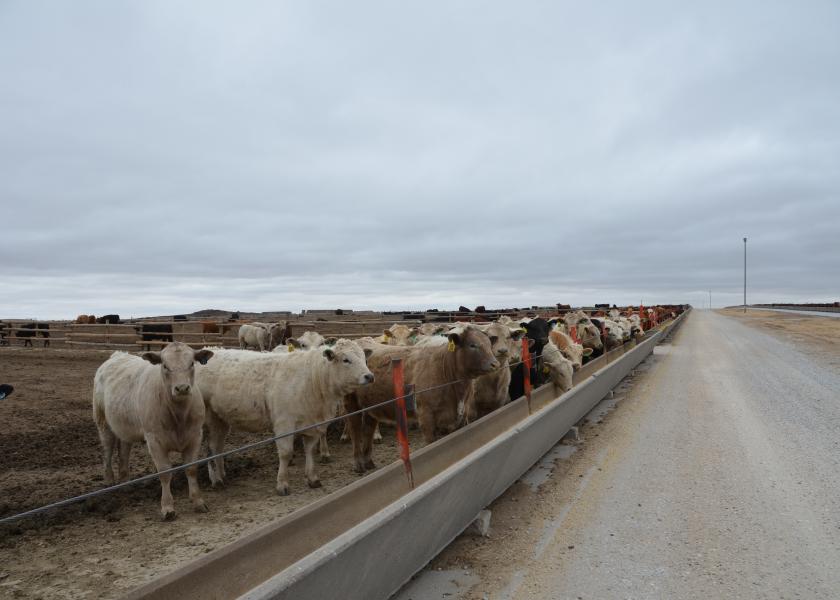Cattle Antimicrobial Resistance Research

Texas Tech University researcher Kristin Hales has received funding from both the USDA and from NCBA for a research project to evaluate the distribution of antimicrobial resistance (AMR) genes and the occurrence of potential horizontal gene transfer in high-risk cattle.
In June, Hales, the Thornton Distinguished Chair and associate professor in the Department of Animal & Food Sciences at Texas Tech received a nearly $1 million grant from the United States Department of Agriculture-National Institute of Food and Agriculture (USDA-NIFA).
Now, NCBA has awarded Hales a grant for $225,000 for her project. This grant will expand and enhance the USDA-NIFA grant, and the research will be conducted on the same set of cattle.
“Our research is designed to determine how decisions on metaphylaxis affect the impact on shedding of Salmonella and antibiotic-resistant E. coli, and the potential for multi-drug resistant Salmonella to develop and persist,” Hales said.
The project funded by the NCBA is in collaboration with the University of Nebraska-Lincoln and the U.S. Meat Animal Research Center in Clay Center, Nebraska. It involves conducting two studies with high-risk beef cattle to evaluate AMR reservoirs in feedlot cattle to enhance the understanding of ecology, emergence and transmission of AMR, specifically multi-drug resistant (MDR) Salmonella and E. coli.
Microorganism cultures, or isolates, identified as MDR will then undergo whole geonomic sequencing to determine AMR genetic relationships between E. coli and Salmonella and whether use of antimicrobials or a type of antimicrobial potentially contributed to that transfer.
Horizontal gene transfer is the movement of genetic material between organisms in ways other than the transmission of DNA from parent to offspring. It allows bacterial species to exchange genetic material, which can include AMR genes. This can result in those genes being resistant to multiple drugs and allow zoonotic pathogens, such as Salmonella, to form AMR to multiple antimicrobials.
Hales expects results to show which isolates test positive for MDR and, utilizing genome sequencing, to determine any potential gene transfer by evaluating gene sequence variants between E. coli and Salmonella.
Antimicrobials are widely used in the beef cattle industry for disease prevention and treatment, and its use can contribute directly to the emergence of drug-resistant bacterial pathogens. Salmonella transfer to humans through ground beef remains a concern. Another concern with beef cattle is liver abscesses, which can negatively affect growth performance and reduce beef values. These abscesses also are treated through use of the antimicrobial tylosin phosphate.
Being able to reduce the use of antimicrobials while still keeping cattle healthy is crucial to the beef industry. Results from this study will provide a better understanding of the development and persistence of AMR in feedlot cattle and will aid in evaluating novel direct-fed microbials as an alternative to tylosin phosphate.







